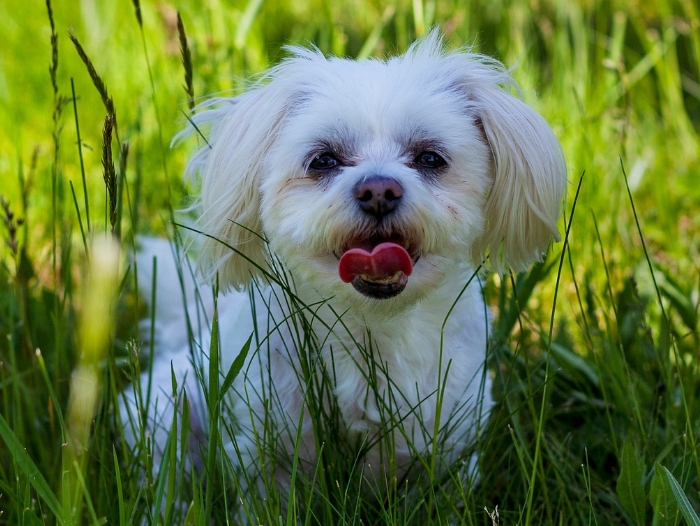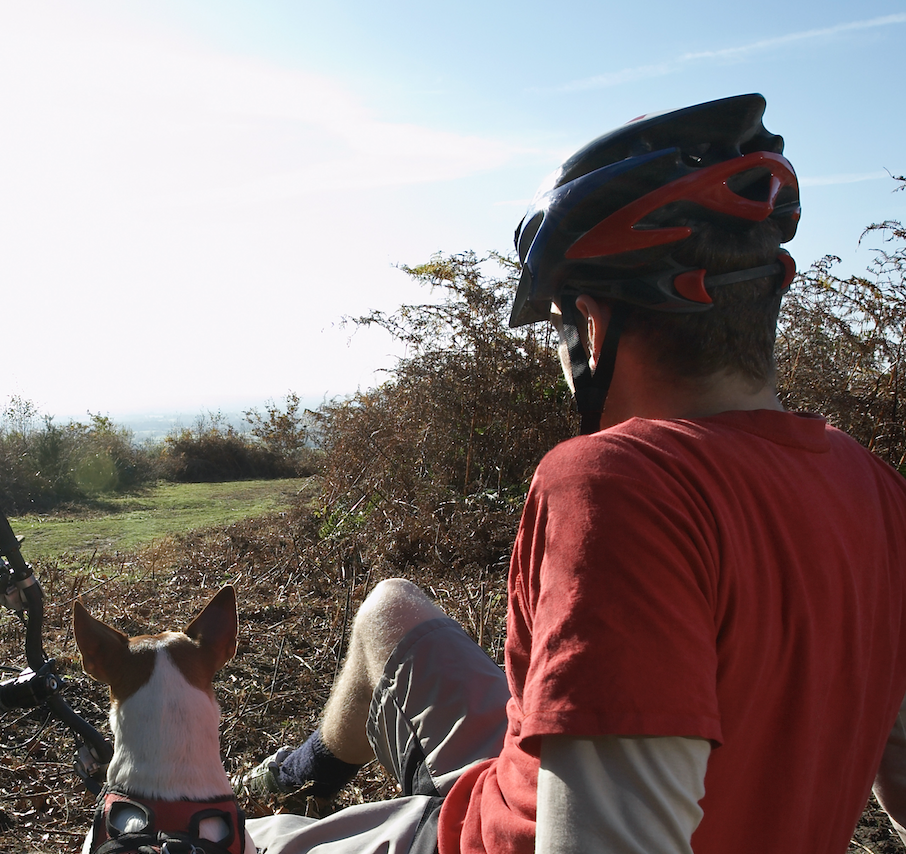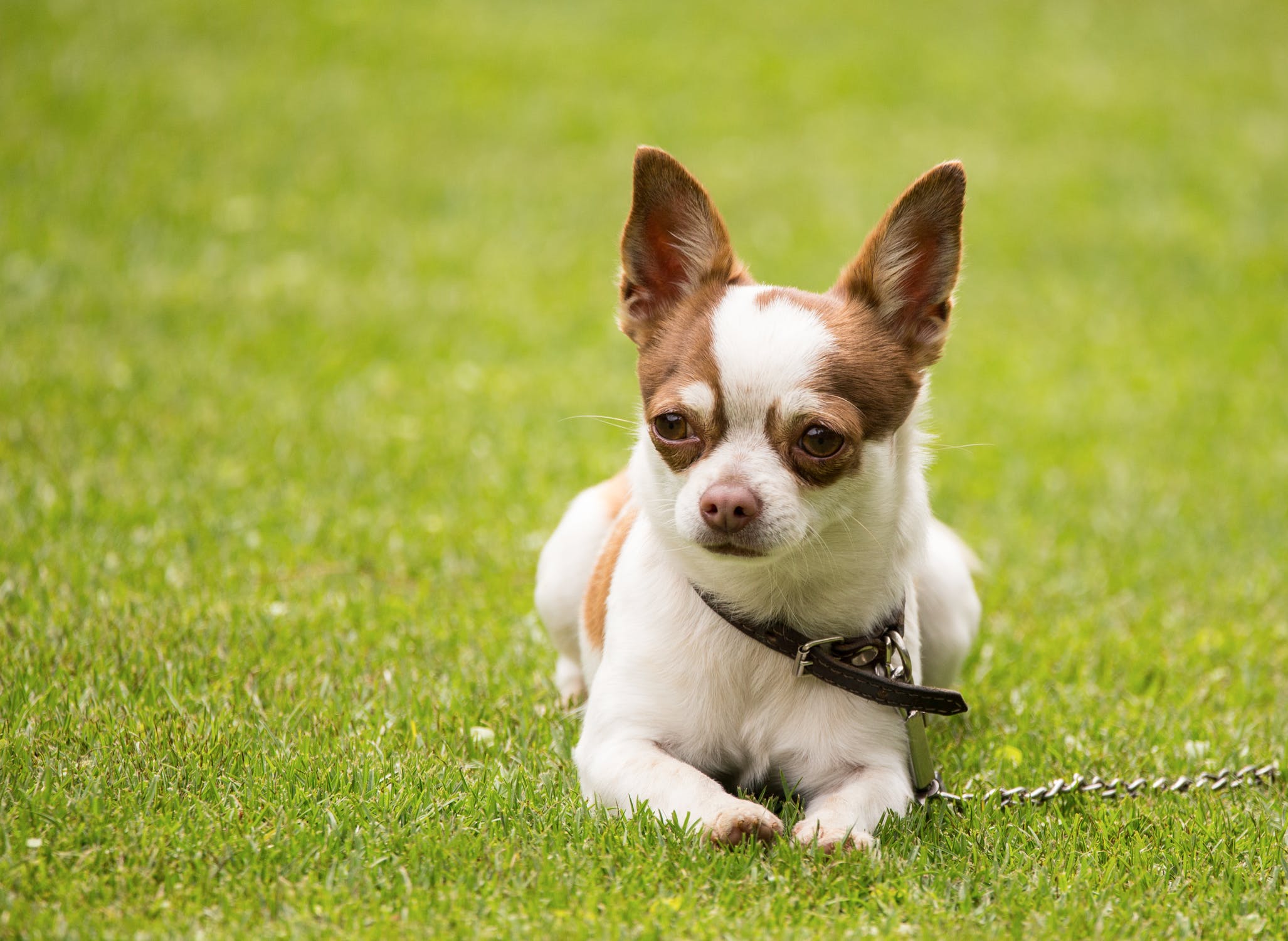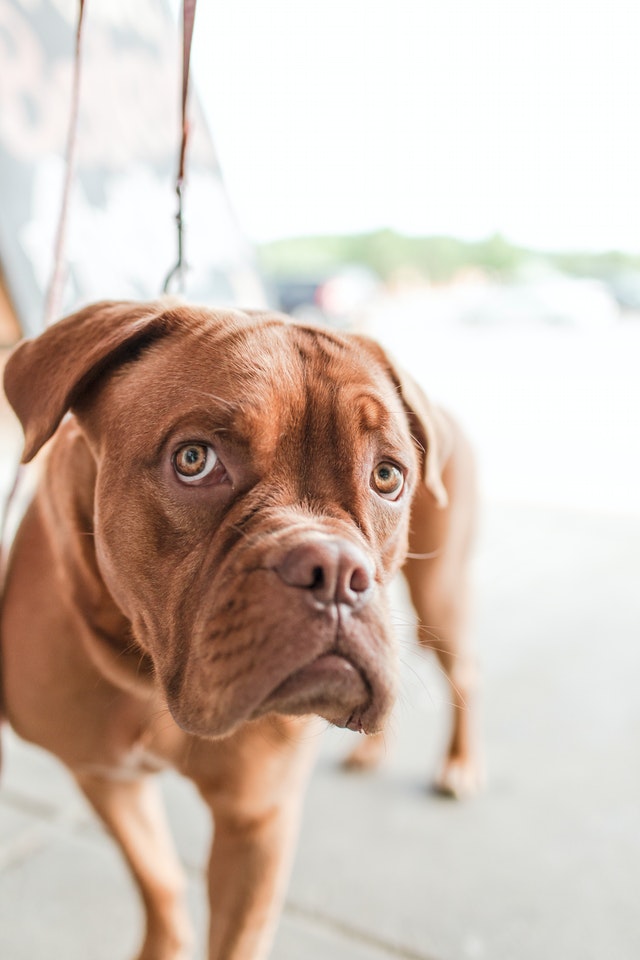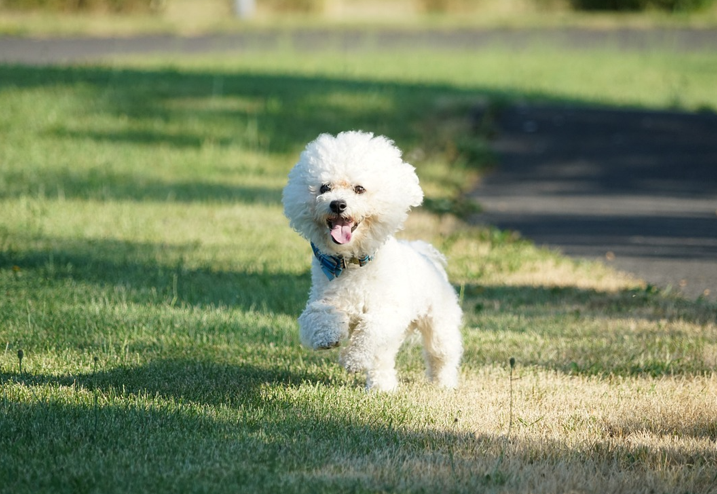
What are the first few things that come to your mind when you see a dog of the breed Bichon Frisé? Super cute, fluffy, excellent for cuddling, maybe a bit demanding in terms of grooming?
These canines are real sweethearts with a friendly disposition, who are preferred by many people looking for a loving pet companion!
However, the great reputation of these dogs also caused a lot of people to consider training them as service animals. Are these people on the right path, or have they made a mistake by opting for a dog of the Bichon Frisé breed as a service dog? Let’s find out!
History
Although the French are those who developed the dogs of this breed as lapdogs, as we mainly know them nowadays, these canines were originally bred as sailing dogs in Spain and the Canary Islands in particular. It is believed, that sailors brought them to Europe.
The word “bichon” in French is likely to originate from the word “bichon” in Middle French, which means a “small dog”. It is also related to the word “biche”, which is used to describe a female dog. The French word “frisé” means “curly”. In other words, the name of the breed is used to depict its representatives as small curly dogs.
The breed is likely to have derived from water dog breeds such as the Poodle and the Water Spaniel or the Barbet.
Physical Appearance and Lifespan
These white curly doggies reach up to 10-20 lbs / 5-9 kg in weight and 9-12 lbs / 23-30 cm in height. Their rounded heads with round dark eyes and curly long tails make them look very gentle and friendly.
The smooth and glossy coat of these canines is considered hypoallergenic and plushy in touch. The breed is among the lowest shedding breeds in the world, which makes it preferred by people with an allergy to dog fur.
The doggies of the Bichon Frisé can be seen in the following color variations (the recognized ones by the American Kennel Club): White, White & Cream, White & Apricot, and White & Buff. According to the AKC, the dogs that meet the breed standard, do not have any markings on their coats.
Please be prepared to take proper care of the beautiful coat of your dog if you opt for a representative of that breed, and take them to regular grooming sessions (at least once a month). Bathing will also be necessary.
The average lifespan of the dogs of the breed is 12–15 years.
Temperament
Gentle, playful, affectionate, alert- these doggies are as loving as they look! If you are looking for a small, gentle dog, you may want to get a pup of this breed! The Bichon Frisé canines are known for being friendly with other dogs and children, so if you have a large household but are missing a furry companion, you may have just found the right type of dog for you!
The dogs of the breed are considered highly trainable, so you should not have problems teaching your pup various tasks and tricks. They will respond very well to training based on positive reinforcement such as treats, toys, and praise.
Since these canines are derived from water types of dogs, they are likely to enjoy swimming and splashing and the water! Playing fetch may be among their favorite games, so if you are looking for a dog to bring you items, a dog of this breed may have the potential for the job!
These small cute canines are very active, so if you have kids, or you enjoy engaging in fun games, you may have found the right dog breed! However, due to their small size, these canines tend to get tired relatively quickly after having some outburst of energy.
They do not tend to bark a lot (although they can occasionally bark as most dogs do), so if you enjoy having a calm time at home or maybe have neighbors who do not tolerate loud noises, these doggies may be suitable for your lifestyle.
Also, you won’t have problems raising a canine of the breed in an apartment, as they are small and do not require so much space. You should not forget to take your paw friend for regular walks, so they can spend their energy and remain calm.
Exercise for about 30–40 minutes a day is considered sufficient for these little cuties. However, do not wait for your canine to spend their energy running at home only, and never neglect your responsibility to take them for daily walks.
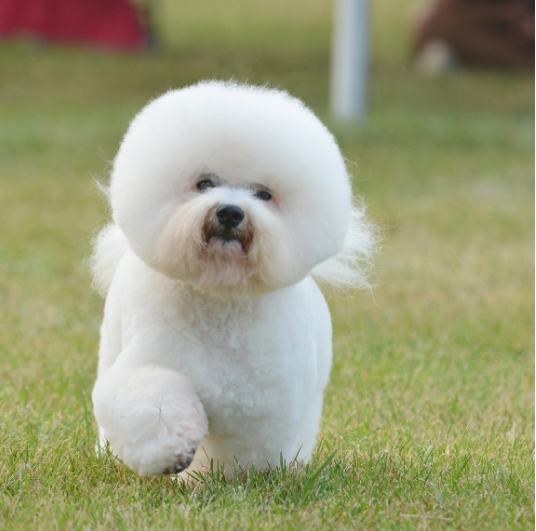
Social Aspects
The Bichon Frisé dogs are not a great choice if you are looking for a watchdog, and their small size is not the only reason for that. Typically, these dogs are very friendly toward people, even unfamiliar ones.
They are adaptable to changes in their environment, so if you often move, a dog of this breed may suit you well.
As mentioned above, these canines are very active, so you will need to spend time playing with them and exercising them, to prevent them from getting bored and develop some behavioral issues out of boredom.
Can the Dogs of the Bichon Frisé Breed Become Good Service Animals?
These cute dogs can become amazing service animals, especially when it comes to emotional support and psychiatric service dog tasks!
Psychiatric Service Dog Tasks
Thanks to their friendly and loving nature as well as their ability to get attuned to their owners, the Bichon Frisé canines have the potential to excel in PSD tasks! With positive reinforcement you can train your paw friend to alert you to oncoming panic or anxiety episodes, by nose-nudging at you, pawing at you, or licking your face (many handlers prefer to teach their dogs to lick their arm or leg instead); provide Deep Pressure Therapy; guide you to a safe place; provide crowd control...and other tasks common in PSD training, that may benefit you.
Since these dogs are small, engaging in mobility tasks is not likely to be their strength. However, retrieving items may be a task that they will enjoy doing!
Retrieve Tasks
Your paw friend is likely to be keen on playing fetch, whether it will be as a game or as a part of a training session. If you need an energetic little fellow to bring you medication or other small items, a dog of this breed is likely to be the right fit for you!
Medical Alert Tasks
Small dog breeds can also become good alert service dogs! According to the general rule, long-muzzled dogs are more suitable for medical alert tasks, as they have more olfactory receptors compared to short-muzzled canines.
Also, the Bichon Frisé is a very gentle and loving dog breed, whose representatives enjoy being petted by their owners. Dogs who are looking for physical contact and are attuned to their owners have a better potential to become good alert dogs, than canines who are more reserved.
If are looking for a service dog to alert you to low/high blood sugar, epileptic episodes, irregular heart rate, etc., a canine of this breed may suit your needs!
Hearing Tasks
These dogs have good hearing skills. With proper training, they can learn to recognize different types of sounds and alert you to them. The alerting type of behavior that a dog can be trained to show, vary from person to person.
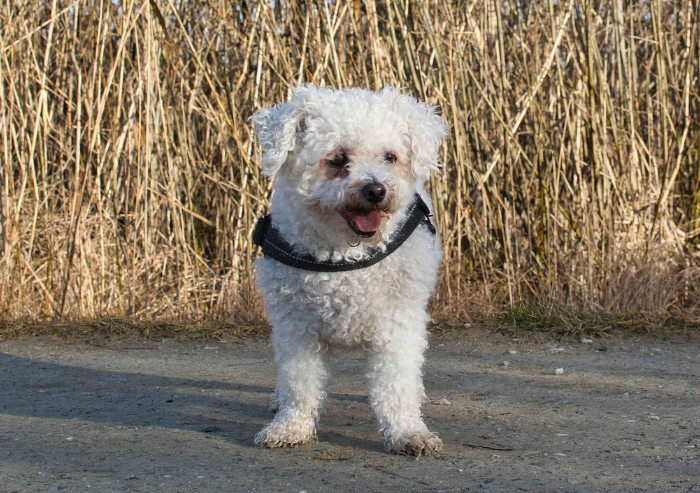
How to Train a Dog of the Bichon Frisé Breed as a Service Dog?
If you have already read some of our articles, you are likely to already be familiar with the types of training.
Depending on your location, you may be allowed to train your pet dog yourself and/or with the help of training programs like ours. Service dog regulations in countries such as the US, the UK, some Canadian provinces, the Netherlands, Mexico, etc. are very liberal and protective of service dog teams. They allow dog owners to train their pet dogs as service dogs.
The laws in other countries are stricter, and training through an Assistance Dogs International (ADI) member may be required. However, the regulations in many countries offer the opportunity for self-trained service dogs to be recognized if they go through an evaluation with an accredited local school. We advise you that you review the laws in your country and make an informed decision.
Service dog training is a process that requires full commitment and dedication. Proper training, whether through a recognized organization or a training program, should include basic obedience tasks, specific service dog tasks and public manners. Make sure that your paw friend has good manners in public and reliably perform the tasks you need them to do.
Both small and large dog breeds can become good service dogs when properly trained and loved!



